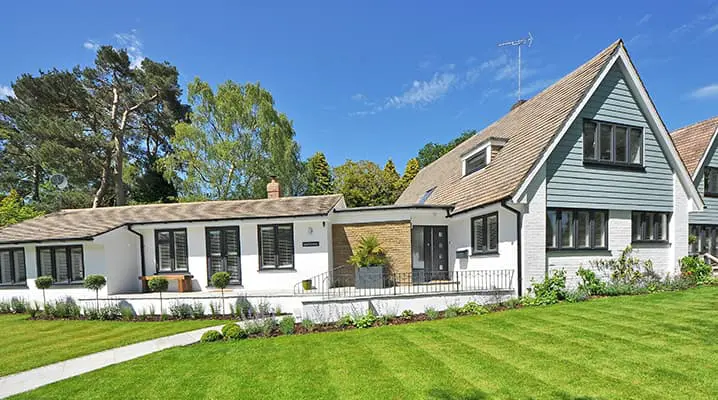Making Smarter Investments With Indianapolis Rental Properties
If you're exploring ways to diversify your financial portfolio with tangible assets, real estate is a smart starting point—and Indianapolis offers a strategic advantage. With stable home prices, strong rental demand, and relatively low entry costs, the city provides fertile ground for real estate investment success.
At High Return Real Estate, we have helped many investors like you find and purchase investment properties for sale in Indianapolis to build a portfolio that offers steady income streams and builds long-term wealth.
Whether you're new to investing or want to expand your existing portfolio with multi-family or single-family real estate in a growing market, learning how to identify and secure the right property is an essential first step.
In this guide, we'll teach you the fundamentals of buying investment properties in Indianapolis, including why the local market is attractive, how to evaluate deals, and what makes this city stand out compared to other regions.
Why Real Estate Investment in Indianapolis Is Gaining Momentum
When it comes to building wealth through real estate, location is everything, and Indianapolis consistently ranks high on the list of investor-friendly cities. Thanks to its attainable housing inventory, population growth, and balanced economy, it's becoming a go-to destination for those seeking long-term value without the volatility of coastal markets.
One of the driving forces behind this trend is affordability. Unlike the sky high cost of properties in coastal metro areas where initial investments require massive capital, Indianapolis housing prices make it possible for investors to acquire properties that generate solid rental income with a modest upfront investment.
Additionally, the city's rental market is fueled by a growing population of young professionals, blue-collar workers, and college students who prefer renting over buying. This combination of low cost housing and growing demand for rentals is ideal for investors who own rental properties and leads to low vacancy rates in high demand neighborhoods.
Indianapolis also benefits from low property taxes and a business-friendly regulatory environment, allowing you to maximize profitability while keeping ongoing expenses under control. As a result, more investors are discovering that Indianapolis offers one of the most accessible and promising real estate investment opportunities in the Midwest.

Understanding the Investment Process
When you're buying investment properties, your success hinges on more than just picking a house and putting a tenant in it. It's about analyzing numbers, managing risks, and choosing a property that aligns with your goals. Indianapolis offers multiple entry points for investors, whether you're interested in single-family homes or multi-family properties.
But before you purchase any property in Indianapolis, it's important to understand how to vet a property and its potential. You should evaluate both macroeconomic indicators, including job growth and population trends, and micro-level data, such as neighborhood appreciation rates, crime statistics, and school districts. These factors all influence rental demand and pricing, as well as the long-term appreciation of the property.
Once you find a property that meets your investment criteria, run the numbers. Make sure there's room for you to make money after accounting for taxes, mortgage, insurance, maintenance, and potential vacancy.
Assess Cash Flow Potential
Compare the projected rental income with anticipated expenses. The difference between these two numbers is what is left over for you at the end of the month. You want to ensure monthly income will exceed your monthly outgo.
Factor In Repair Reserves
Even turnkey or newly renovated properties can have issues. Set aside a percentage of rental income for future repairs. This money is your emergency fund. Likely, you won't need to spend much if you choose a new build or turnkey property.
Understand The Neighborhood Profile
The area's stability, amenities, and tenant demand influence a property's long-term value. Before you buy, try to understand where the neighborhood is going. Is it surrounded by new developments and amenities, or has it already seen its best days?
Taking a disciplined, numbers-driven approach helps you minimize surprises and build a portfolio that supports your future financial goals.
The Strategic Advantage for Rental Investors in Indianapolis
The Indianapolis rental market is particularly favorable to investors focused on long-term income. With a high percentage of renters and a growing job base, the city offers both stability and growth potential.
Unlike other metros where price appreciation is unpredictable and rental yields are compressed, Indianapolis provides steady returns through predictable cash flow. These conditions make it ideal for buy-and-hold investors who prioritize income over flipping. You can find investment rental properties for sale that are already occupied, recently renovated, or even fully managed. Purchase one of these properties, and you can start collecting rent almost immediately.
Additionally, the city has a wide range of residential investment properties, from modest single-family homes to newer multi-unit developments. This allows you to scale your investments based on your comfort level and available capital.

Investment Hotspots in Indianapolis
Some of the most promising investment neighborhoods in Indianapolis include:
- Irvington – A historic neighborhood attracting both renters and renovators due to its character and proximity to downtown.
- Martindale-Brightwood – An up-and-coming area that's seeing redevelopment and strong rental yields.
- Speedway – Home to the Indy 500, this neighborhood balances affordability with tourism-driven demand.
Whether you're looking for cash flow or appreciation potential, the Indianapolis market gives you options to match your investment strategy.
Step-by-Step Breakdown of the Property Buying Process
If you're new to investing, the path to buying a profitable property might seem complex. However with the right approach, it becomes manageable and repeatable. Here's how the process typically unfolds:
Define Your Investment Goals
Before jumping into the market, you'll want to establish what you're hoping to achieve. Are you investing for monthly income, long-term appreciation, or portfolio diversification? Clarifying your direction and goals will guide every other decision you make.
Set Your Budget and Financing
Decide how much capital you can invest, and whether you'll be using cash, conventional loans, or investment-specific financing. In Indianapolis, your dollars stretch farther than in other major metros, giving you more flexibility. However, if owning multiple properties is part of your investment strategy, you may want to explore financing options to free up your reserves for future property purchases.
Research the Market
Use local data to identify neighborhoods with strong rental demand and low vacancy rates. High Return Real Estate provides tools and insights to help you evaluate where the best opportunities lie. We have been investing in Indianapolis for years and will guide you to the best areas to purchase rental properties.
Evaluate Properties
Once you've narrowed your options, you'll want to assess each property's cash flow, tenant situation, condition, and management setup. This is where turnkey options save time. They don't need renovations or upgrades before you can rent them out. They come ready to work for you from day one.
Close and Transition
After closing on the property, the transition to landlord should be smooth, especially if you've partnered with a company that offers full-service management. With tenants in place and systems running, you can focus on building your portfolio instead of fixing problems.
Why Choose High Return Real Estate for Buying Investment Properties
Expertly navigating the Indianapolis real estate market takes local expertise, experience, and a reliable network. That's exactly what High Return Real Estate offers. Instead of going it alone, you can choose from their curated selection of high-performing turnkey rental properties that are already vetted, rehabbed, and tenanted.
What sets High Return Real Estate apart is its singular focus on helping you generate passive income from day one. They specialize in cash flow properties, eliminating the guesswork and delays typically associated with rental investing. Their team provides full-service support, from acquisition through property management, helping you save time while earning consistent returns.
With a proven track record of delivering high return property investments in Indianapolis and surrounding markets, they've built a model that aligns with investors who want performance without the headaches.

